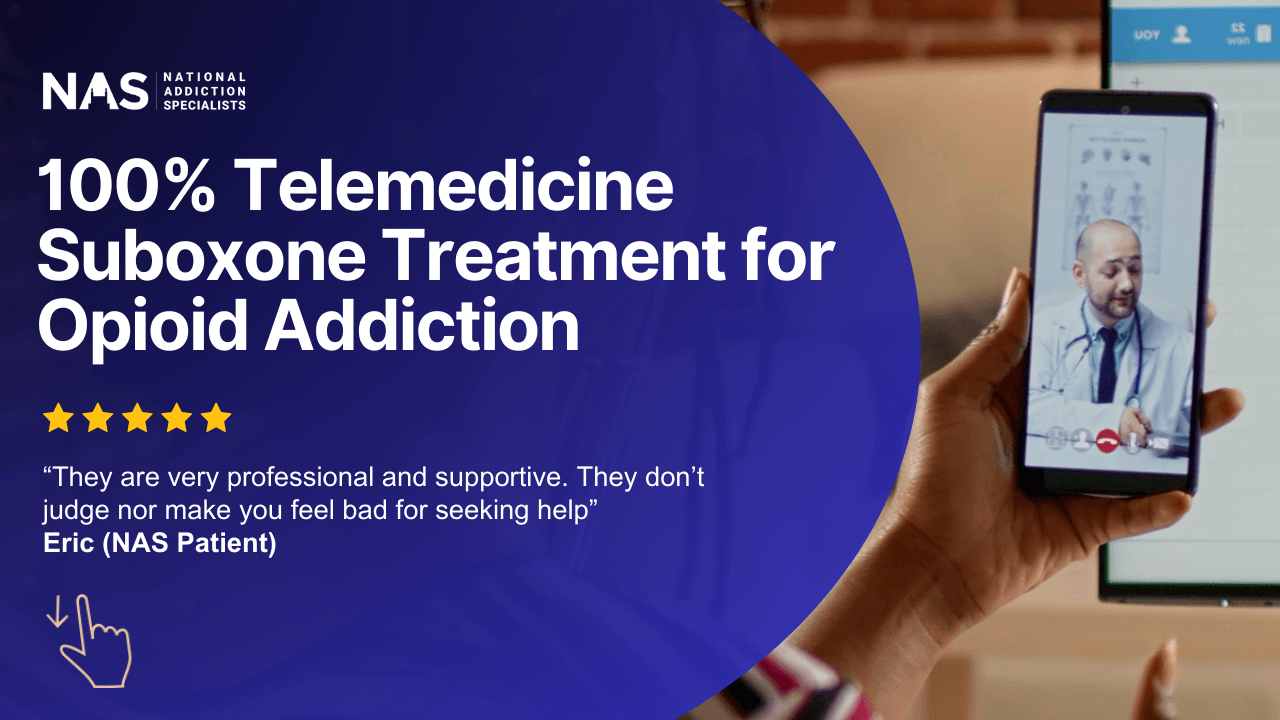Suboxone Treatment FAQs
Suboxone Withdrawal: Symptoms, Duration & Tapering
Key Points
- Suboxone withdrawal period varies depending on various factors, including the individual’s level of dependence, the dose they were taking, and their overall health.
- If someone stops taking Suboxone immediately, they may begin to experience discomfort within 1-3 days or 72 hours after their last dose.
- Intense physical symptoms, such as nausea, vomiting, muscle pain, insomnia, and drug cravings, usually occur in the first few days but physical and psychological symptoms such as muscle pain and mood swings can last up to 1-2 weeks.
- Physical symptoms normally decline within a few days or weeks. However, individuals may still experience milder but persistent psychological symptoms such as mood swings, anxiety, and sleeplessness for several weeks or even months.
Suboxone is made up of two ingredients: buprenorphine and naloxone. It helps those who are withdrawing from opioids by reducing their symptoms and cravings while also making the "high" less enjoyable while preventing misuse.
Suboxone is primarily used to treat opioid addiction as a medication-assisted therapy (MAT). It is used to assist individuals struggling from opioid addiction reduce their opioid dependency and manage withdrawal symptoms.
Suboxone Withdrawal Symptoms
Common Suboxone withdrawal symptoms includes:
- Physical discomfort such as muscles and body pain
- Difficulty sleeping, insomnia and changes in sleep pattern
- Psychological symptoms such as anxiety, restlessness, irritability, and mood swings
- Digestive issues such as indigestion, nausea, vomiting and diarrhea
- Hot flashes, excessive sweating than usual, fever, runny nose and watery eyes
Suboxone Withdrawal Period
Suboxone withdrawal varies based on health, length of use, dose, and tapering plan.
- The first 72 hours after the last dose – Suboxone withdrawal symptoms usually start anywhere between 12 and 48 hours following the last dosage. Symptoms are typically intense during this time with physical and psychological symptoms such as nausea, hot flashes, diarrhea, muscle aches, and anxiety.
- Acute Withdrawal Phase (1st to 2nd Week After Withdrawal) – Physical symptoms start to decline, but psychological symptoms can become more intense, such as mood swings, irritability and anxiety.
- Post-Acute Withdrawal Syndrome – Individuals may continue to experience emotional or psychological symptoms, including difficulty sleeping, mood swings, and anxiety. These symptoms can persist for weeks or even months after the initial withdrawal.
How long does Suboxone withdrawal symptoms last?
Withdrawal symptoms can be different for everyone coming off Suboxone. Withdrawal symptoms usually don’t last more than a few months, with most physical symptoms disappearing within a month. However, emotional or mental symptoms such as anxiety and mood swings might last for a few weeks or even a few months.
Do I need to taper off Suboxone, or can I quit cold turkey?
It is important to speak with a healthcare provider or addiction specialist before tapering off Suboxone. Tapering involves gradually reducing the dose while under medical supervision, and it can make withdrawal symptoms more tolerable.
Quitting Suboxone “cold turkey” may result to severe withdrawal symptoms such as increased emotional distress and physical discomfort. Individuals may use opioids or other medications to relieve their severe cravings and suffering which may lead to addiction.
It is important to consult a Suboxone doctor or addiction specialist if you wish to discontinue using Suboxone. They can create a customized plan and provide guidance to assist you in safely and effectively managing withdrawal symptoms. If medical monitoring is necessary, they can help ensure your safety and wellbeing during the withdrawal process.
Rates of overdose deaths have been increasing due to lack of access to treatment with addiction.
If you or a loved one is struggling to overcome opioid addiction, we are here to help. The first step will be to fill out our new patient packet for us to assess your needs and create a personalized plan for you.


Got Questions to Ask? We are here to assist you!










